I was surprised I couldn't find a graph like this already on the forum, so I made one and thought I would share it:
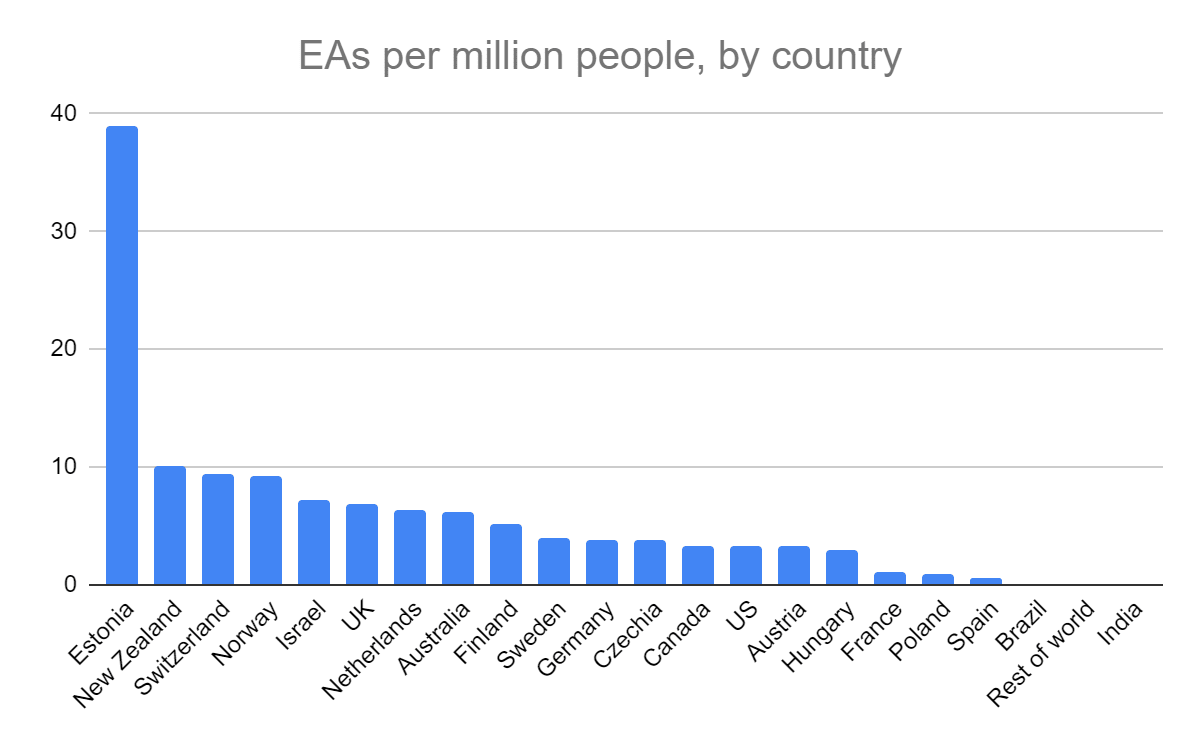
The data is from the 2022 EA survey,[1] and here is my sheet.
The main surprising thing to me is that English-speaking countries are less dominant than I expected, in this per capita framing. My vague sense was that the EA community was notably more popular in the Anglosphere than even in other rich countries, but eyeballing this data makes me think I was wrong: Northern/Western Europe seems to have quite comparable rates of EAs.
And what on earth is happening in Estonia? Perhaps some Estonian EAs can tell us all what you are doing that works so well!
- ^
Maybe there are quite different response rates by country, and this could explain some of the variance but I assume there isn't a large or systematic effect here.

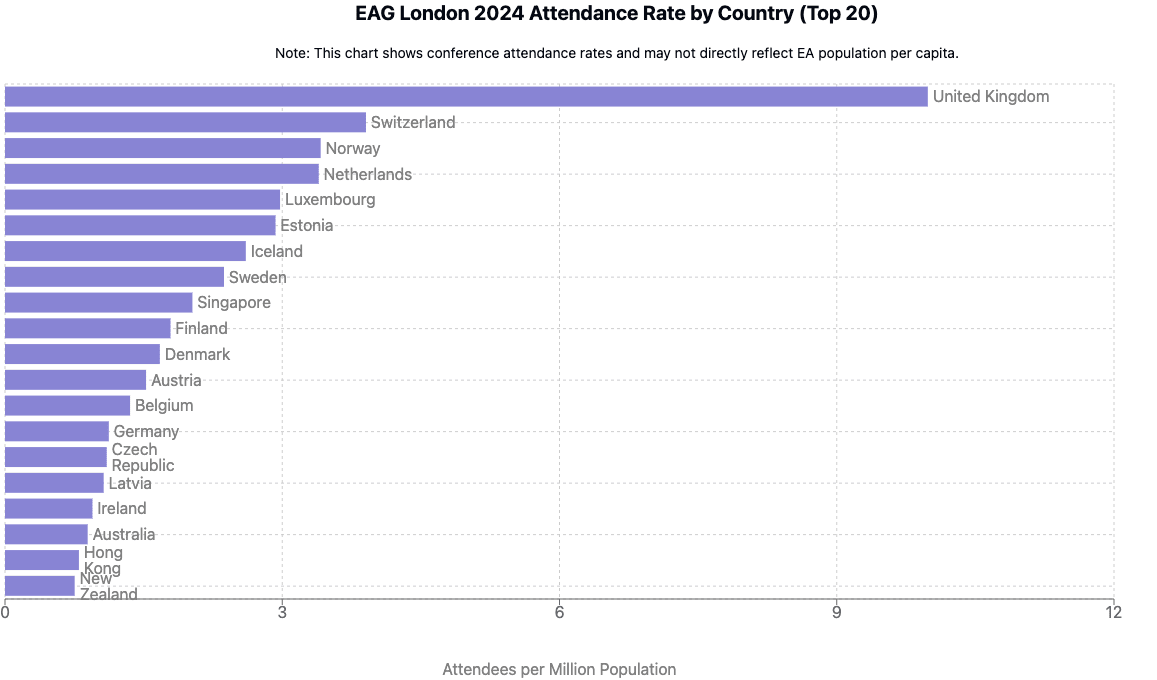
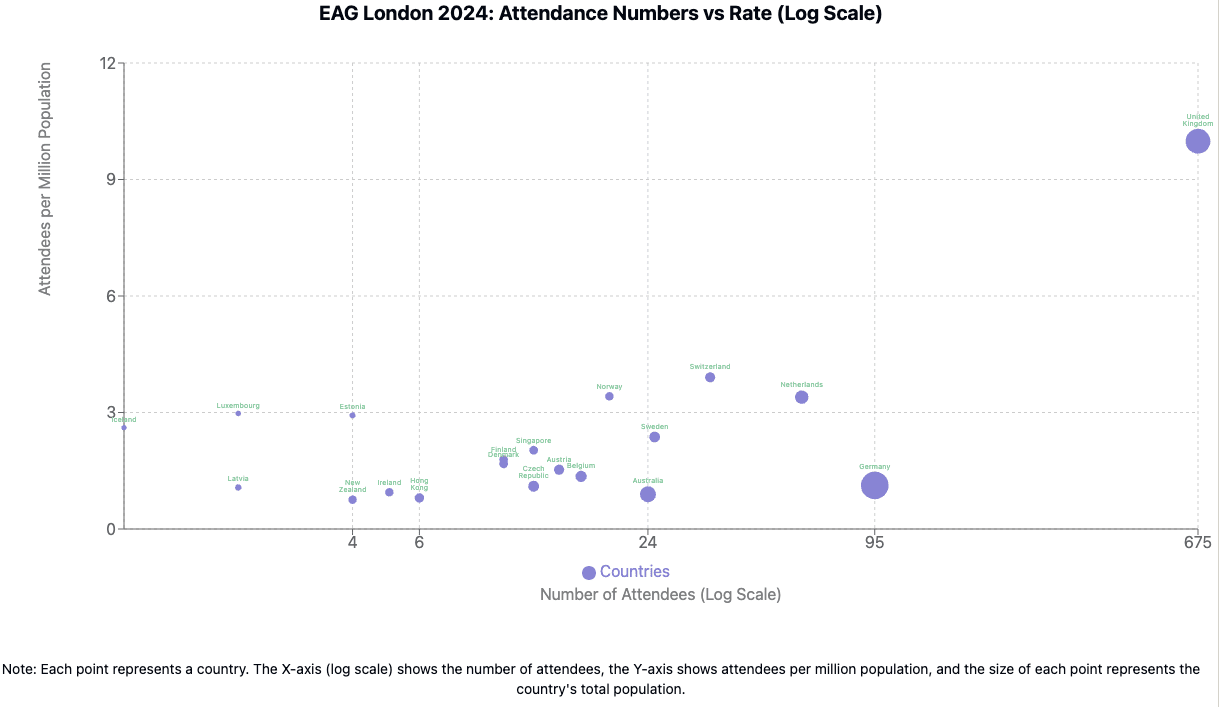
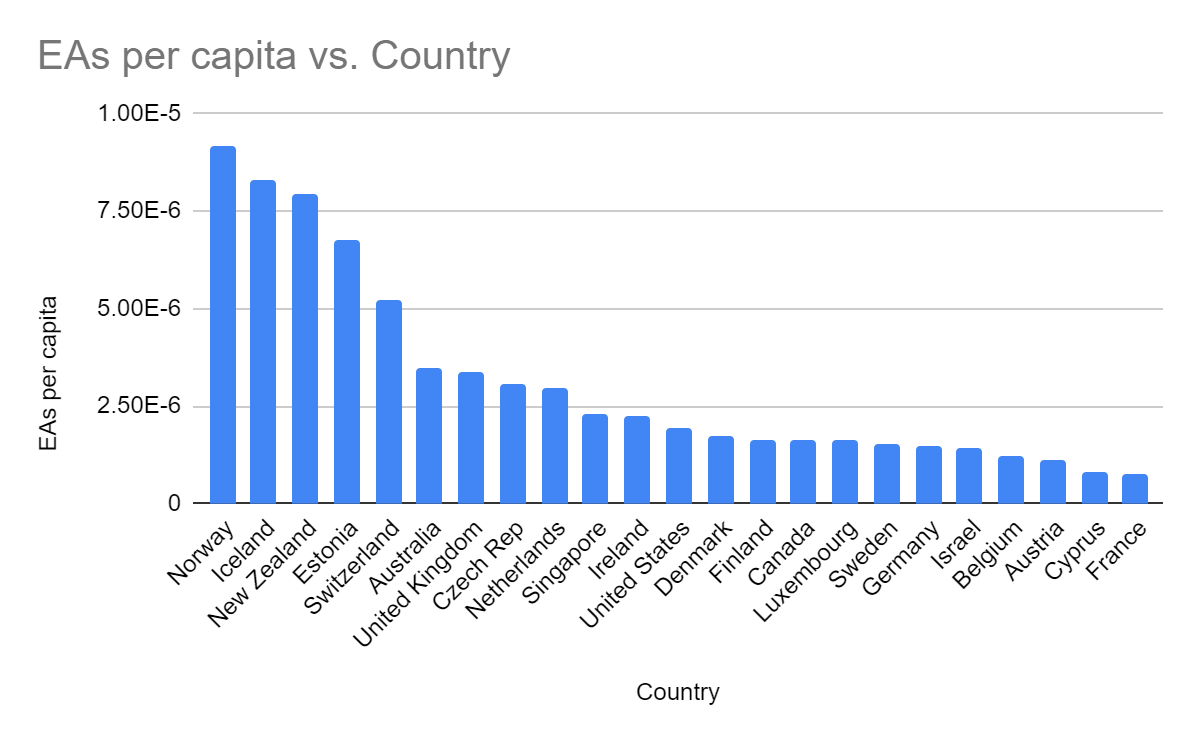
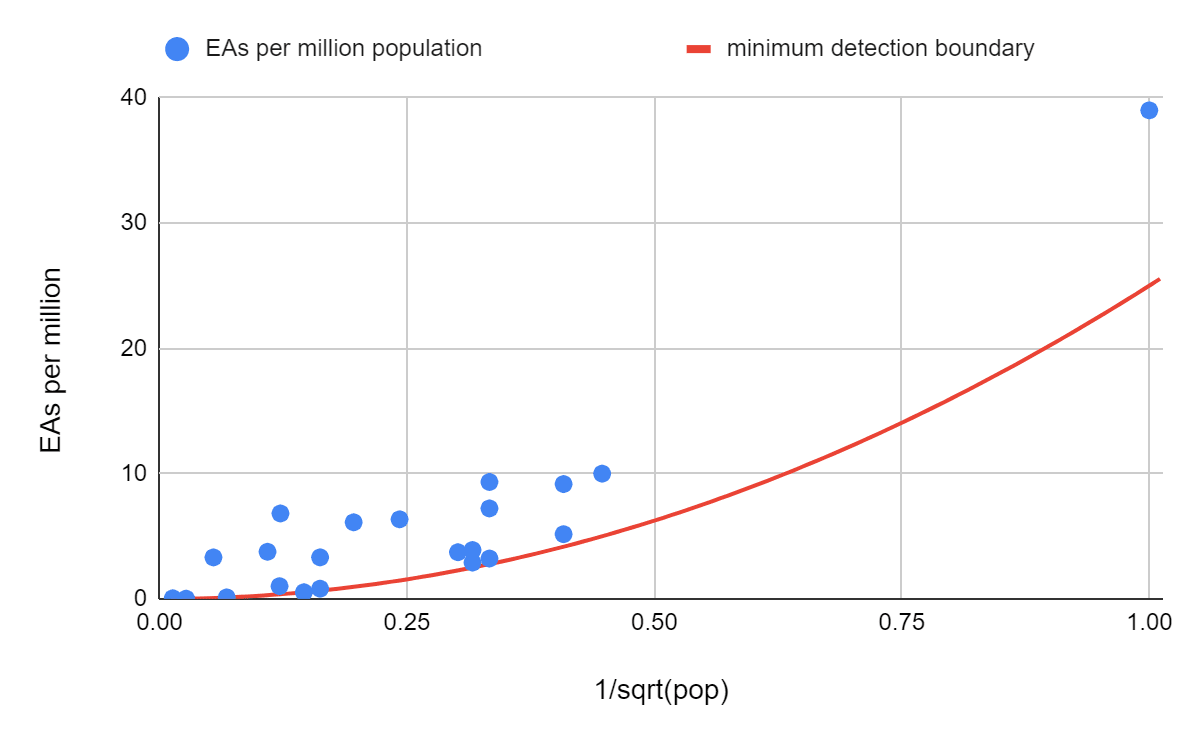
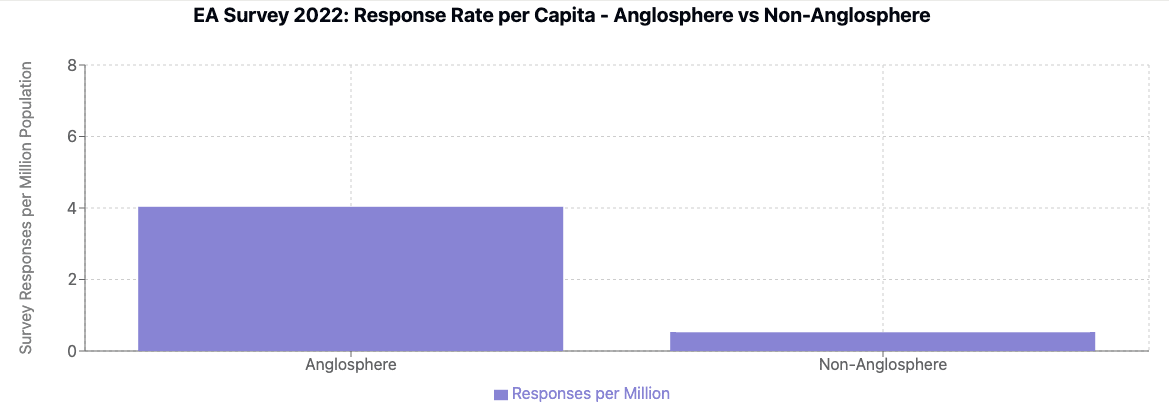
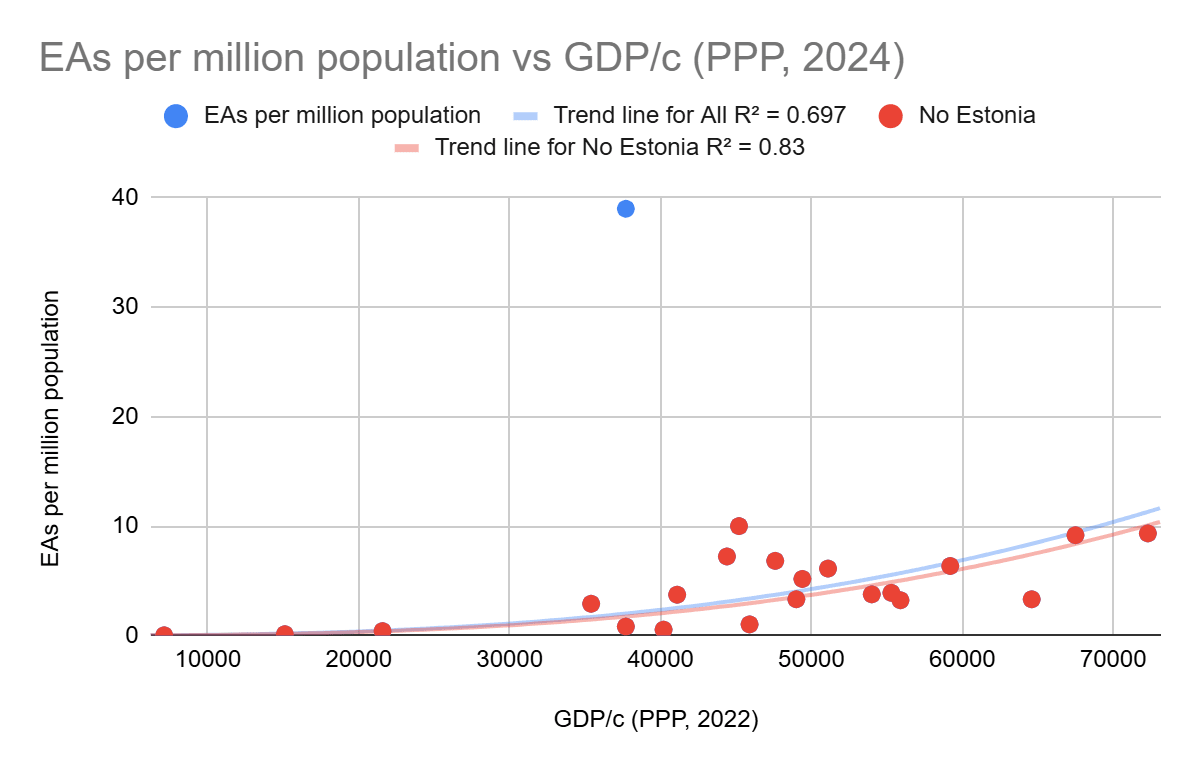
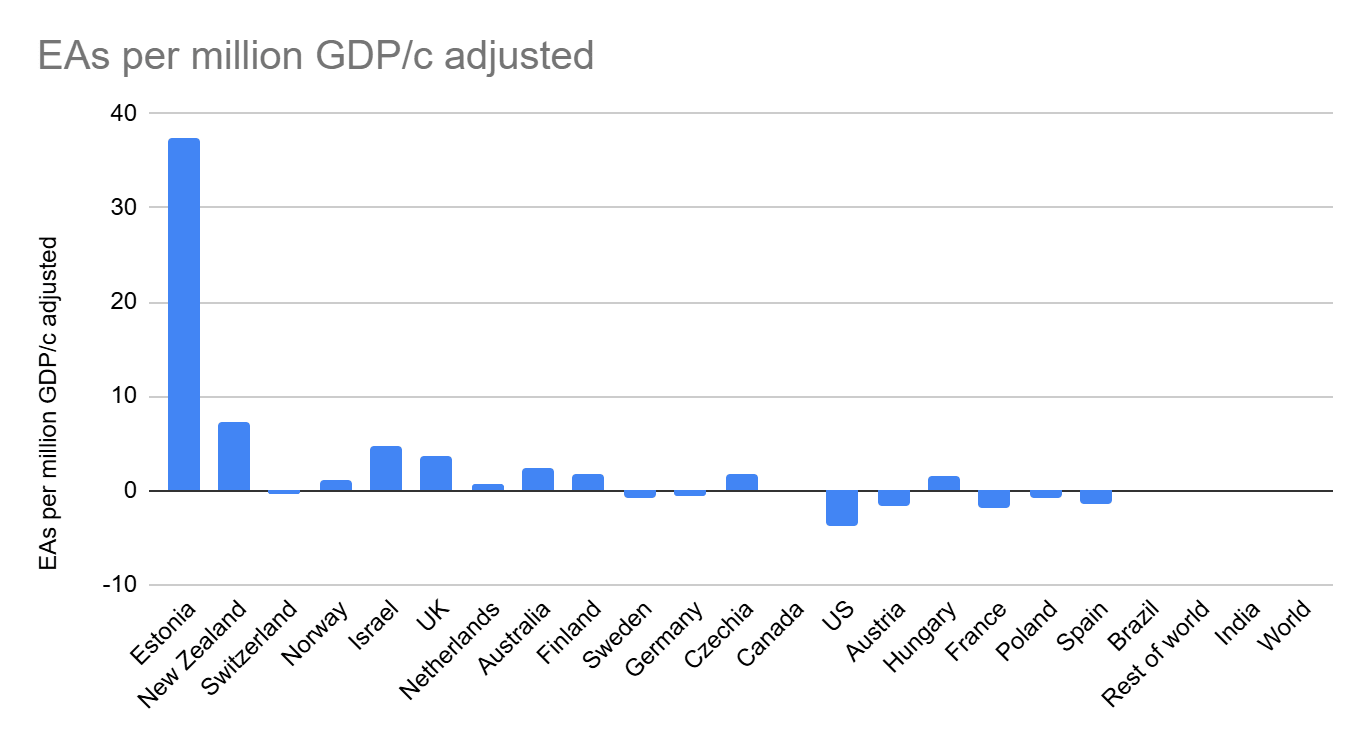
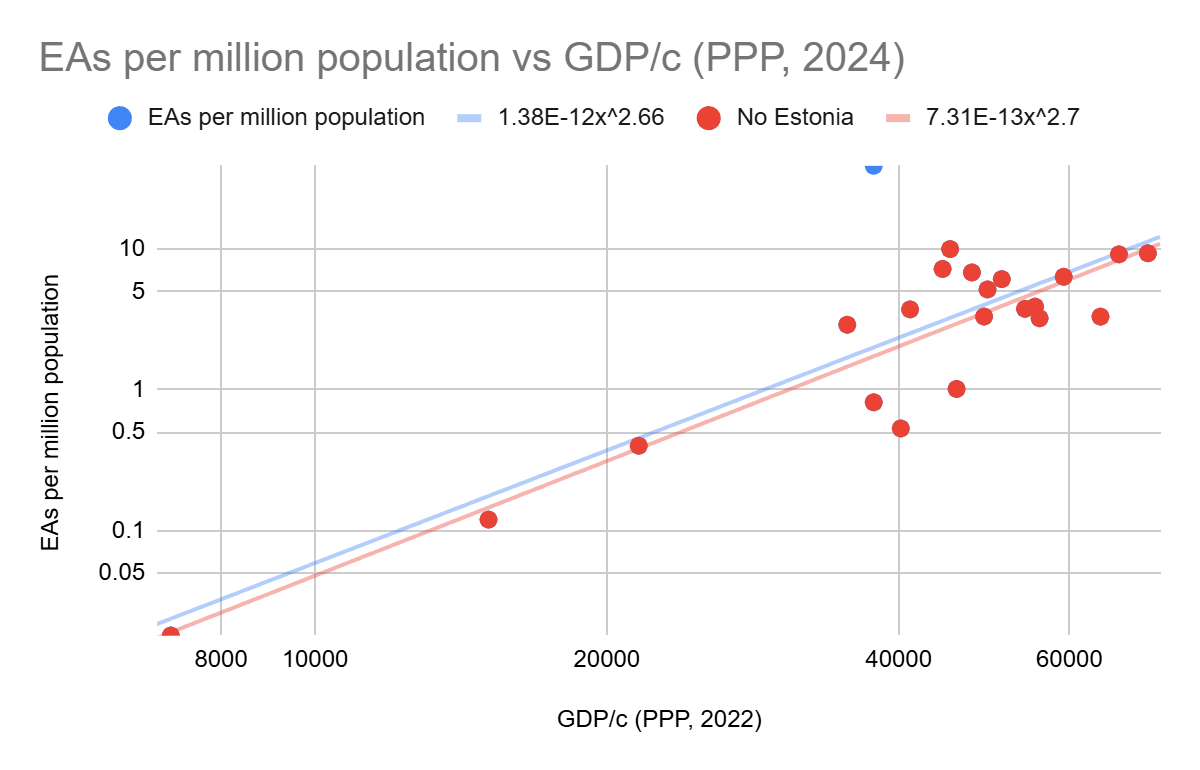
Cool that you did this, Oscar! What made you make this?
It seems like, regarding EA engagement, there’s a significant impact in well-organized city groups in smaller countries, leading to a concentrated effect. I read up a bit on EA Estonia/Estonia as a result of this post (didn't know much about them before this!), and they’re a relatively small country with concentrated efforts in key urban centers (Tallinn, the capital; Tartu, a university city). The synergy between the two seems to have the potential to create a concentrated and cohesive national EA network. The idea of cohesive communities <> smaller countries makes sense too.
Also, I imagine smaller countries with single/few concentrated influential unis/intellectual hubs can lead to higher EA visibility/network cohesivity/potential EA engagement. E.g. Estonia with University of Tartu? New Zealand and University of Auckland? Switzerland and ETH Zurich? Norway and University of Oslo? (People with more knowledge here, please correct me if I'm wrong!)
Love this tweet you shared